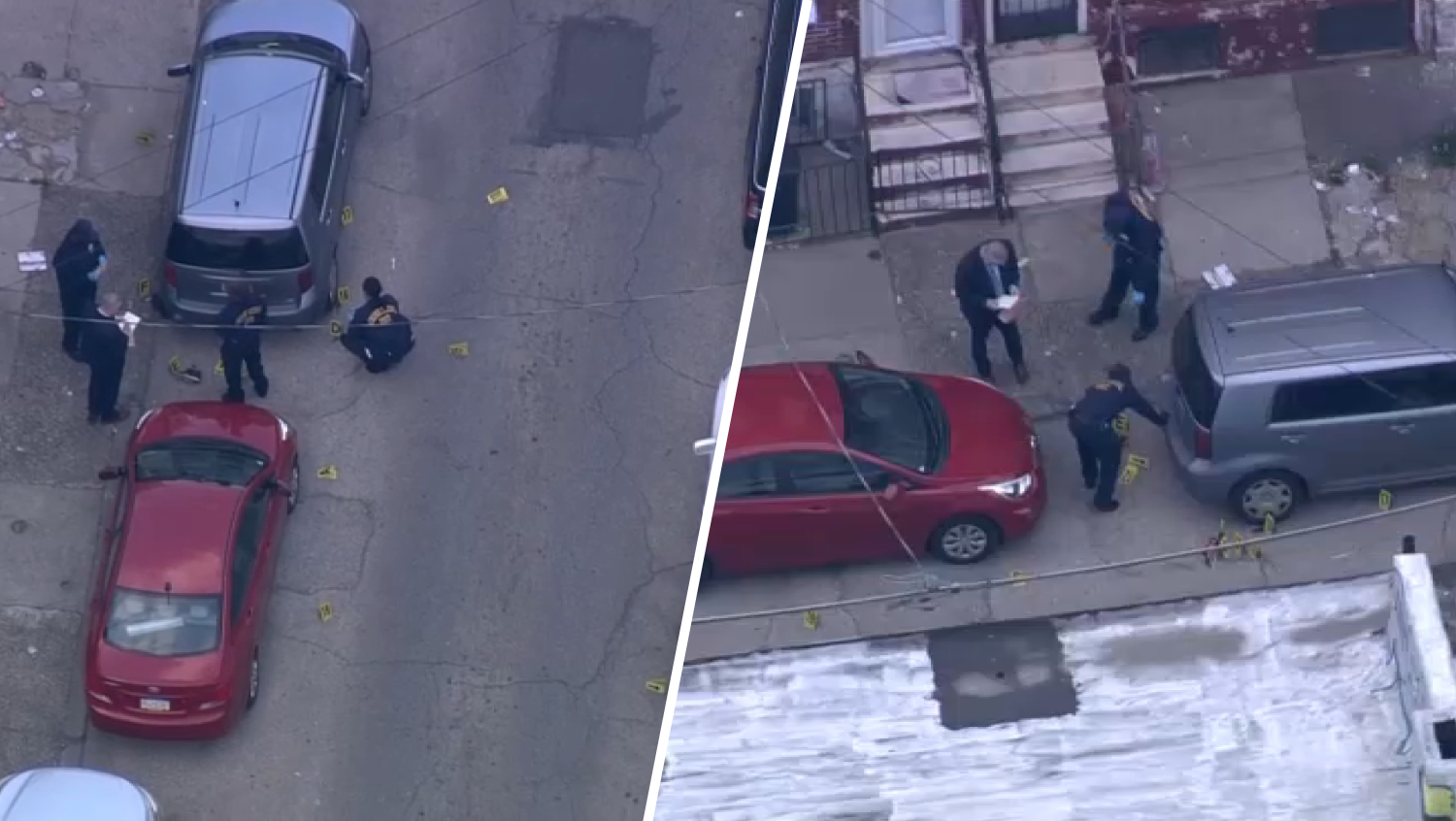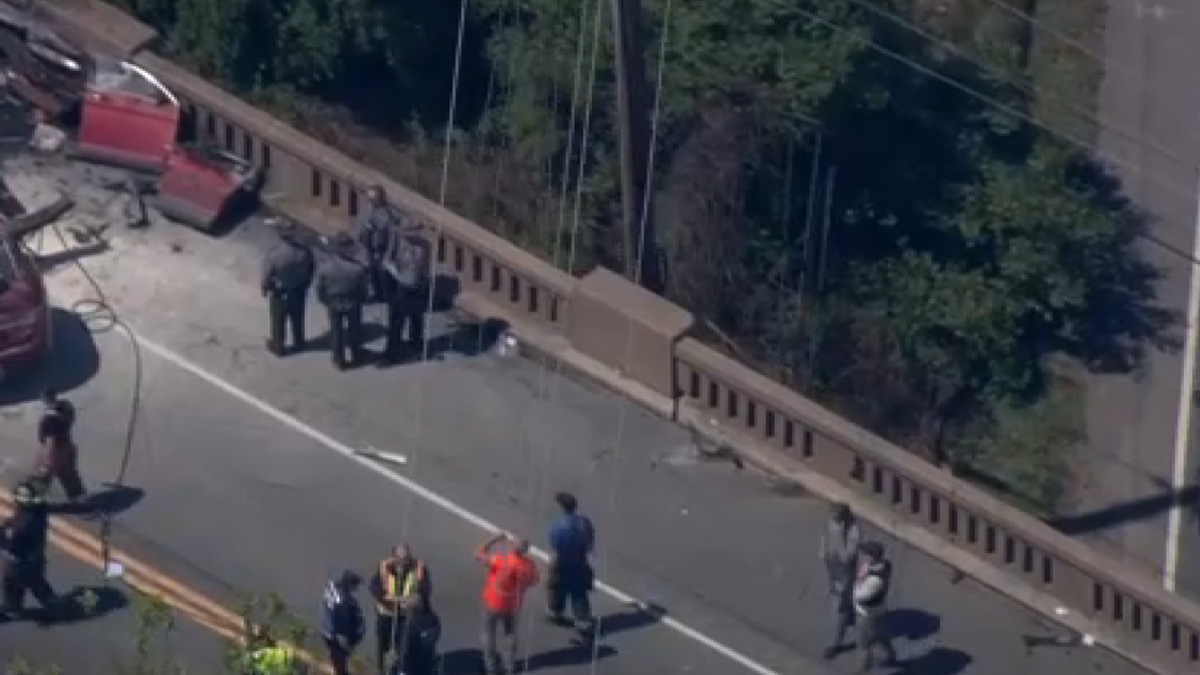.medium div.leadMediaRegion {border:none} .medium .leadMediaRegion.city_module iframe {height:400px;}
A decade-long legal struggle involving Meek Mill and Philadelphia’s criminal justice system is playing out in the courts. Here’s a look back at the entire saga.
JANUARY 2007: Meek Mill, whose real name is Robert Rihmeek Williams, is arrested in Philadelphia and charged with assault, drug and gun possession.
AUGUST 2008: Mill is convicted of weapon and drug charges.
JANUARY 2009: He is sentenced by Common Pleas Judge Genece Brinkley to 11½ to 23 months behind bars and seven years of probation.
JUNE 2009: Five months later, Mill is released from jail and paroled under house arrest. He obtains permission to work, but is ordered to earn a high school equivalency diploma and undergo drug treatment.
DECEMBER 2011: Multiple times throughout 2010-2012, he tests positive for drug use but isn’t held to be in violation of the terms of his release and is not jailed. Now, however, he is found to be in technical violation because he tested positive for opioid use, but is not jailed.
Local
Breaking news and the stories that matter to your neighborhood.
DECEMBER 2012: Mill’s travel outside Philadelphia is suspended for at least a month and he is ordered to perform community service, due to probation violations and ignoring of an earlier court ruling to stop scheduling upcoming performances.
MARCH 2013: He is found in violation of his probation for travelling outside the city. Brinkley orders Mill to attend etiquette classes to refine his social media use and courtroom behavior. He also must notify his probation officer before taking any trips outside the state.
APRIL 2014: Mill sues the city of Philadelphia and two police officers who arrested him in October 2012. The officers claimed to have stopped him because they smelled marijuana in the car, but no marijuana was found. Mill called it a racially-motivated, 10-hour traffic stop that caused him to miss the launch party for his debut album. A federal jury rejected the lawsuit.
JULY 2014: He violates his parole again, and is returned to jail for about five months and given an additional five years of probation. His violations include failing to report to his probation officer, making unauthorized travel plans and ignoring court orders.
APRIL 2015: Mill publicly confirms his relationship with rapper Nicki Minaj in an Instagram post.
JULY 2015: Mill and rapper Drake entangle in a feud sparked my Mill’s claims that Drake didn’t write his own lyrics for a song they collaborated on earlier in the year. The feud sparked several diss songs, including Drake’s “Charged Up” and “Back to Back” and Mill’s “Wanna Know.”
DECEMBER 2015: Mill is back in court for his fourth hearing for violations, because he didn't report to his probation officer, disobeyed travel restrictions and submitted a sample of cold water for a urine test. His then-girlfriend, rapper Nicki Minaj, testifies on his behalf, and promises to help keep him organized and fulfill his community service requirements.
FEBRUARY 2016: Mill is sentenced to house arrest for 90 days and is required to do community service.
JANUARY 2017: Mill and Minaj call it quits. Minaj tweets confirmation of her split with Mill: “To confirm, yes I am single,” adding that she’s focusing on her work.
NOV. 6, 2017: Brinkley sentences Mill to two to four years in state prison for violating probation. She cites a failed drug test, failure to comply with a court order restricting his travel and two other unrelated arrests. One involved a fight in an airport in St. Louis for a fight in March, and the other was for reckless driving of a dirt bike in New York City in August.
NOV. 14, 2017: Three buses with #FreeMeekMill slogans on their sides stop by the Race Street headquarters of the Philadelphia police department before making their way to Old City. This comes a day after a large protest outside the Criminal Justice Center near City Hall that involved celebrities like Julius “Dr. J” Erving and rapper Rick Ross. Billboards in support of Mill also begin to pop up around the city.
NOV. 17, 2017: Rapper Jay-Z takes to the New York Times Opinions section to voice his support for Mill. “What’s happening to Meek Mill is just one example of how our criminal justice system entraps and harasses hundreds of thousands of black people every day,” Jay-Z writes in the op-ed.
NOV. 27, 2017: The Rev. Al Sharpton, a prominent civil rights activist from New York City, visits Mill in Chester State Prison.
DEC. 5, 2017: Mill’s legal team again appeals court to free him from prison, after an unsuccessful appeal was filed the week before.
DECEMBER 2017: 76ers’ Joel Embiid visits Mill in prison to “show him some support.” Embiid, along with Sixers players Ben Simmons and Justin Anderson, was photographed holding t-shirts that read “Stand with Meek Mill” at the Jay-Z concert in Philly.
FEBRUARY 2018: “Ain’t this what they’ve been waiting for? You ready? I used to pray for times like this,” Mill raps in the opening lines of his hit “Dreams and Nightmares,” a song that became the Philadelphia Eagles’ unofficial anthem when they celebrated to it after the NFC Championship. The “underdogs” even take the field in the Super Bowl to Mill’s song.
MARCH 13, 2018: During a criminal justice reform panel held at University of Pennsylvania, Mill makes a surprise appearance by phone. “I’m the platform for other people to fight for their freedom,” Mill tells a packed audience.
MARCH 14, 2018: The Philadelphia District Attorney’s Office makes a statement saying the office is “not opposed” to Mill being released on bail.
APRIL 2, 2018: Brinkley refuses to excuse herself from the case, and says in a 48-page opinion issued in Pennsylvania Superior Court that Mill’s two-to-four year sentence is “reasonable.”
APRIL 5, 2018: The Philadelphia District Attorney’s Office files a motion to the state supreme court saying that it does not oppose Mill being released on bail.
APRIL 10, 2018: Robert Kraft, owner of the New England Patriots, visits Mill in prison. “Every time I see him, I just come away more impressed,” Kraft said. “He’s very intelligent. And makes it clear to me we have to do something with criminal justice reform.”
APRIL 11, 2018: Philadelphia Mayor Jim Kenney visits Mill in prison, and Kenney spokeswoman Ajeenah Amir said the mayor believes Mill “would better serve the community outside of prison.”
APRIL 16, 2018: The District Attorney's office supports a call for a new trial. The office says the credibility of the police officer involved in Mill's original arrest and trial has been called into question. The officer appeared on a list of alleged corrupt cops in the city. Brinkley, who continues to refuse granting bail, sets an evidentiary hearing for June 18. Cheers erupt from the demonstrators gathered outside the Criminal Justice Center.
APRIL 24, 2018: The Pennsylvania Supreme Court rules that the Philadelphia Court of Common Pleas must immediately release Mill from prison, pending further hearings. He remains on bail.
JUNE 18, 2018: A heated two-hour Post Conviction Relief Act hearing is held before Brinkley, asking the 2008 conviction be thrown out based on the involvement of a Philadelphia police officer whose reputation has since been called into question.
JUNE 25, 2018: Brinkley issues a 47-page decision that denies his appeal under the Post Conviction Relief Act.



